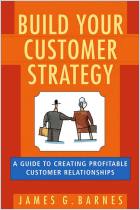
Managing Customers as Investments
The Strategic Value of Customers in the Long Run
Recommendation
How much are your customers worth? If financiers and investors had bothered to ask themselves this basic question, they might have prevented the Internet bubble and other expensive corporate mistakes. Such disasters can occur when people invest in businesses with no earnings and fanciful business models. Authors and professors Sunil Gupta and Donald Lehmann make a powerful case that executives should abandon outdated business-evaluation models based on traditional financial metrics, such as cash flows. Instead, they should rely on the present and future value of their businesses’ customers: the „customer’s lifetime value,“ or CLV. The authors discuss these issues in understandable language and buttress their arguments with formulas that will enable marketers to implement their ideas. They also provide helpful examples that are like mini business-school case studies. getAbstract highly recommends this book to all marketing executives, as well as to executives who are financially responsible for mergers and acquisitions, or advertising. This book could change the way you do business and increase your earnings from your best customers.
Summary
About the Authors
Sunil Gupta and Donald R. Lehmann are professors at the Columbia Business School. Gupta leads seminars and consults on marketing strategy, pricing and customer management. Lehmann’s other books include Analysis for Marketing Planning, Product Management and Meta-Analysis in Marketing. He is the founding editor of the journal Marketing Letters.





















Comment on this summary